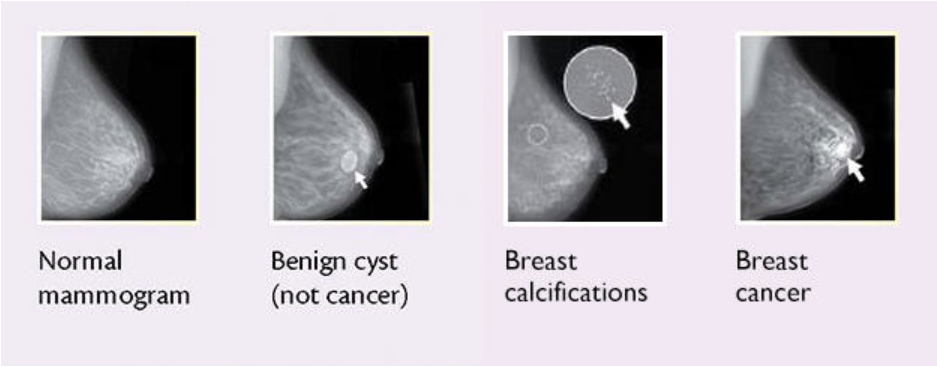by PHILIPPA HETHERINGTON

The culture around breast cancer is full of positivity and femininity. But it comes at the expense of the marginalised
very day when I open my eyes, my vision bobs between my bedroom and the horizon of sheets that have crept up the bed in the night. As a result of secondary breast cancer, I am paralysed from the waist down, and can’t drag myself up in the bed, so I remain slumped, inside and outside the day. When I use the remote control on my hospital bed to sit my back up, I slide down in the bed and my paralysed feet press against the bed end. I can’t trust myself to fix it, so I remain half under the sheets, waiting for my husband, mother or carers to come and release me.
Secondary breast cancer is the bad one – the one you die of. The public picture of breast cancer is the primary version – the one you can possibly be cured of, if you’re willing to go through a mastectomy, radiation and chemotherapy. The public picture of breast cancer suggests that women who have been subjected to this ‘slash, burn, poison’ model of treatment should consider themselves survivors. Yet breast cancer can come back as Stage 4 at any time in a woman’s life, and secondary breast cancer (SBC) is incurable. Depending on the type of breast cancer – there are at least four subtypes – a secondary breast-cancer patient is on chemotherapy, immunotherapy or hormone therapy for the rest of their shortened lives, and treatment is life-altering for almost all SBC patients.
I’m one of the unlucky ones. In January 2022, I woke up one morning and couldn’t lift my leg. We got me into hospital, dragging my right leg like a reluctant schoolchild, and soon discovered I had spinal tumours, in an uncommon location inside the spinal cord. A few days later, I lost feeling in my left leg, which turned out to be from a separate spinal tumour. I had radiation treatment which I was told could stabilise the tumour. But the nerve damage on my spinal cord was unlikely to improve, and I was told I’d probably never walk again.
Not being able to walk means a complete loss of independence. It dashes any hope I’ve had for a period of respite in which I might travel, go to work, or even meet with friends. It’s forced me to accept that I will, almost definitely, not see my home country, Australia, ever again. I’ve spent most of the past decade travelling abroad and far away from the Antipodes, and it was this adventurous life that I thought I’d miss the most. But it turns out to be the severing of my ties to home, to the spare sound of the morning magpie and the smoky smell of fallen eucalyptus, that feels physically unbearable.
They don’t tell you about permanent paralysis at SBC Breast Cancer camp, where the emphasis is often on ‘thriving’ with a terminal disease. They don’t tell you about liver failure or lung disease, which can make the last months of many patients’ lives almost unbearable. Then again, SBC is sneaky and has the ability to shape-shift and emerge malevolently in unexpected places. Aside from paralysis, I have a tumour in my left eye that has caused a retinal tear that makes it hard to see. Women I know have bladder tumours, bowel tumours, and all manner of bony tumours that affect their mobility. And then there is each SBC patient’s greatest fear: brain metastases, which can cause neurological symptoms such as seizures, palsy, and sensory alterations.
All of this exposes the lie of efforts by mainstream charities to glamorise breast cancer – to celebrate ‘survivors’ with a barrage of pink merchandise, pink-themed events, and pink-ribbon fundraising. It’s a vehicle for the promotion of heteronormative femininity, one that’s largely about being pleasing, attractive and sexualised for the benefit of others. I find little common ground here with the visceral reality of what I am going through. As a person with cancer, I often feel stripped of the layers of other identities that I have casually worn for years. Now I am swaddled with other labels – a patient, a woman, a victim, a survivor.
Yet keeping me company on this hard road are a group of feminist theorists who suffered through, thought with, and eventually died from breast cancer. Both Audre Lorde and Eve Kosofsky Sedgwick exposed cancer as something fundamentally discursive, dominated by the usual discriminatory and exclusive categories of gender and race. They have guided me through some of the unexpectedly radical, gender-fluid and contradictory dimensions of living with breast cancer. On the one hand it’s all ‘pink positivity’; yet, on the other, it can involve years of interventions that cause havoc with our hormones, make us lose our breasts and hair, and otherwise disrupt many of the conventional markers of gender. These two opposing pressures – to perform an extreme kind of femininity and to be forced to trouble it in my own body – have been a crucial aspect of my own experience. While I might feel powerless in the face of how this disease is undoing me, Lorde and Sedgwick have granted me a measure of solace – a sense of power, and a means to resist the political endowments of my condition.
Aeon for more
